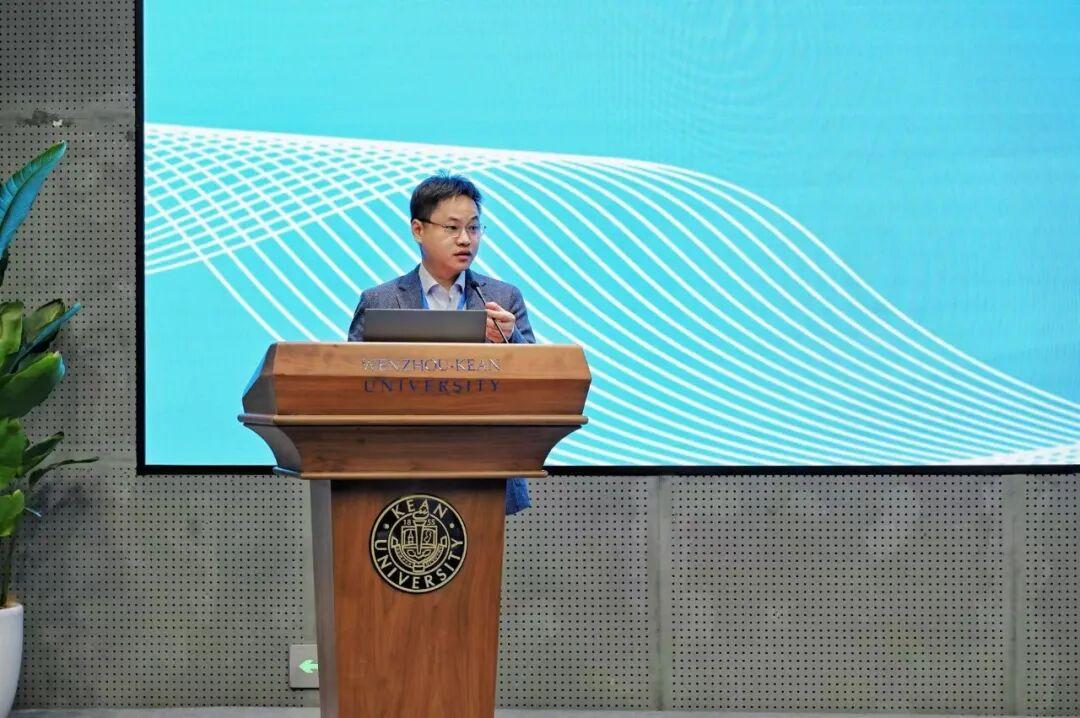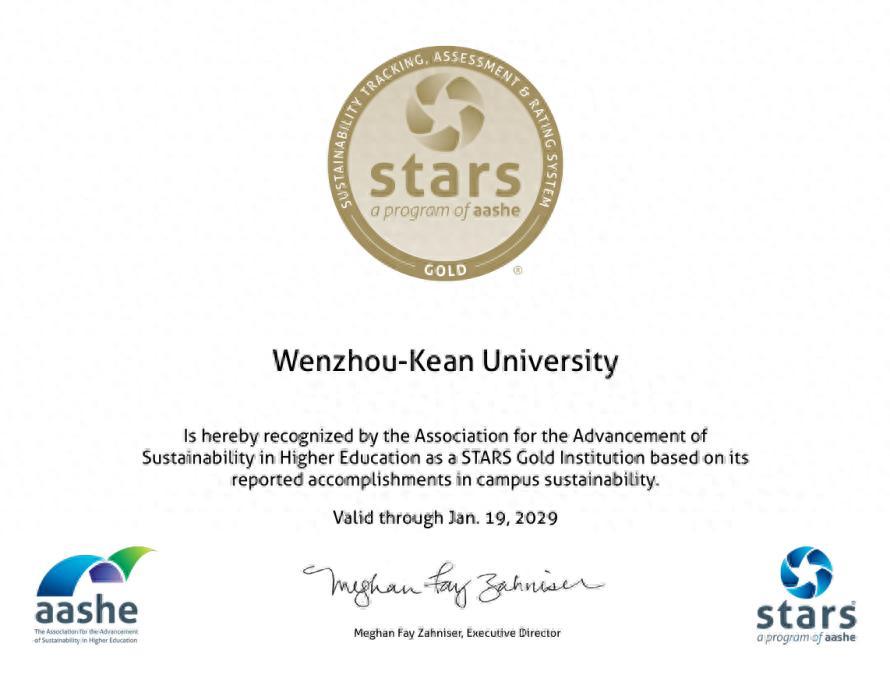
Ataullah Kiani
-
职位:管理科学系助理教授
-
办公室 :CBPM B224
-
邮箱:
Biography
Dr. Ataullah Kiani currently holds the position of Assistant Professor at the College of Business and Public Management, Wenzhou-Kean University.
Prior to assuming his current role, he successfully completed a post doctorate at the School of Economics and Management at Tsinghua University in Beijing, China (QS World ranked 25, THE world ranked 12, and China ranked 1 – AACSB, AMBA, and EQUIS Accredited). Dr. Kiani further enriched his academic experience by teaching at the Chair of Strategic Management and Organization, Faculty of Law, Business, and Economics, Universität Bayreuth, Germany.
He earned a doctorate from the School of Management at the University of Science and Technology of China in Hefei, China (THE World ranked 57 and China ranked 4 – AACSB and AMBA Accredited). Additionally, he holds a Master’s degree from Wuhan University, China. During his doctoral studies, Dr. Kiani’s achievements were recognized with The Chinese Government Outstanding International Student Award, granted by the Ministry of Education in Beijing, China.
Dr. Kiani serves as an Associate Editor of Technology Analysis & Strategic Management. His commitment to advancing scholarly discourse extends to his regular contributions as an ad-hoc reviewer for various global journals. His areas of expertise encompass innovation, entrepreneurship, strategic management, and ethics, reflecting a dedication to the diverse facets of academic research and publication.
Education
Postdoctoral Fellowship in Management Science, Tsinghua University, Beijing, China
Doctor of Management Science (Ph.D.), University of Science and Technology of China, Hefei, China
Master’s, Wuhan University, Wuhan, China
Research Interests
Dr. Ataullah Kiani’s research is dedicated to exploring innovative phenomena in the domains of innovation, entrepreneurship, strategy, and ethics. His specific interests span a broad spectrum, covering entrepreneurial orientation, radical innovation, workplace ethics as well as organizational ambidexterity. This comprehensive investigation extends across diverse contexts, encompassing both SMEs and large organizations, contributing to a holistic understanding of these critical areas.
Dr. Kiani publishes in esteemed journals, including the Journal of Small Business Management (ABS 3, ABDC A, Scimago Q1), Personality and Individual Differences (ABS 3, ABDC A, Scimago Q1), Technological Forecasting and Social Change (ABS 3, ABDC A, Scimago Q1), Business Strategy and the Environment (ABS 3, ABDC A, Scimago Q1), among others.
Additionally, Dr. Kiani actively engages with the academic community, regularly presenting at the Academy of Management Conference (AOM), where he is a member of Entrepreneurship, organizational behavior and Technology and Innovation Divisions.
Course Taught
- MGS 4999 Integrative Business Strategy (Undergraduate Course)
- MGS 4998 Senior Thesis (Undergraduate Course)
- GE 2021 Research and Technology (Undergraduate Course)
- MGS 3520 Business Ethics and CSR (Undergraduate Course)
- MGS 3035 Organizational Behavior (Undergraduate Course)
- GMBA 5785 Cross-Cultural Management (Graduate Course –Global MBA)
- MGS 5030 Human Resource Management (Graduate Course –Global MBA)
Selected Publications
- Pitafi, AH., & Kiani, A. (2025). How can strategic alliances within social networks foster enhanced workplace ggility? Investigating feedback seeking and ESM visibility. Technology Analysis & Strategic Management, Accepted.
- Pitafi, AH., Kiani, A., & Wang, J. (2025). How and when can AI drive sustainable performance? An adaptive structuration theory perspective. Academy of Management Proceedings, Accepted.
- He, K., Bouncken, R., Kiani, A., & Kraus, S. (2024). The Role of Strategic Orientations for Digital Innovation: When Entrepreneurship Meets Sustainability. Technological Forecasting and Social Change, In press.
- Kiani, A. (2024). Artificial intelligence in entrepreneurial project management: A review, framework, and research agenda. International Journal of Managing Projects in Business, In press.
- Kiani, A., Orlandi, L., and Chen, Q. (2024). Greening the Path to Disruptive Innovation: The Roles of CEOs Characteristics, Green Organizational Identity, and Green Product Competitiveness. Business Strategy and the Environment, In press.
- Kiani, A., & Wang, D. (2024). Charting the course: How do CEOs' passion and flexibility influence disruption? In Academy of Management Proceedings (Vol. 2024, No. 1, p. 17644). Briarcliff Manor, NY 10510: Academy of Management.
- Kiani, A., & Wang, D. (2024). Enhancing social innovation: The interplay of business model and networks in social entrepreneurship. In Academy of Management Proceedings (Vol. 2024, No. 1, p. 15669). Briarcliff Manor, NY 10510: Academy of Management.
- Amin, N., Kiani, A., Ahmad, N., & Weng, Q. (2024). Motivation by role models: Do they inspire or discourage us? Investigating the link between role models and entrepreneurial career intention. The International Journal of Management Education. Forthcoming
- Mehmood, K., Kiani, A., Rehman, H., Alshibani, S., & Piccardi, P. (2024). Can platform leadership drive twin transitions in greening SMEs? Exploring the nexus between AI infrastructure flexibility, information effects, and green sustainable practices. Business Ethics, the Environment & Responsibility, In press
- Usman, M., Kiani, A., & Ghani, U. (2024). Leading towards sustainability: Visionary innovation leadership’s impact on green product innovation. Technology Analysis & Strategic Management, In press.
- Wang, D., & Kiani, A. (2024). How and when work intensification leads to unethical pro-organizational behavior? In Academy of Management Best Papers Proceedings (Vol. 2024, No. 1, p. 15025). Briarcliff Manor, NY 10510: Academy of Management.
- Wang, M., Chen, Q., Kiani, A., & Xu, G. (2024). Reporting good news but not bad: the dual effect of employee stewardship behavior on work–family interface. Chinese Management Studies, Forthcoming.
- Kiani, A., Yang, D., Ali, A., & Wang, D. (2024). Harmonizing innovation: The nexus of Zhong-Yong thinking, innovation behavior, R&D resource allocation, and exploratory innovation. Technology Analysis & Strategic Management, In press.
- Kiani, A., Ali, A., Biraglia, A., & Wang, D. (2023). Why I persist while others leave? Investigating the path from passion to persistence in entrepreneurship. Journal of Small Business Management, 61(6), 2818-2848.
- Kiani, A., Wang, D., Ali, A., & He, K. (2023). Too much too good! Entrepreneurial orientation, organizational learning, and the moderating role of technological competence. ZfKE - Zeitschrift für KMU und Entrepreneurship, In press.
- Mehmood, K., Kiani, A., & Rashid, MD. (2023). Is data the key to sustainability? The roles of big data analytics, green innovation, and organizational identity in gaining green competitive advantage. Technology Analysis & Strategic Management, In press.
- Wang, D., Kiani, A., & Ali, A. (2023). How job-insecure employees engage in unethical pro-organizational behavior?. In Academy of Management Proceedings (Vol. 2023, No. 1, p. 15578). Briarcliff Manor, NY 10510: Academy of Management.
- Zheng, Y., Li, M., Hao, C., Kiani, A., & Wang, Y. (2023). Research on enterprise innovation modes choice and alternate evolution from ambidextrous perspectives. Technology Analysis & Strategic Management, 1-15.
- Wang, D., Cao, D., & Kiani, A. (2023). How and when can job-insecure employees prevent psychological distress against the COVID-19 pandemic? The role of cognitive appraisal and reappraisal. Current Psychology, 1-13.
- Wang, D., Weng, Q., Kiani, A., & Ali, A. (2022). Job insecurity and unethical pro-organizational behavior: The joint moderating effects of moral identity and proactive personality. Personality and Individual Differences, 195, 111685.
- Kiani, A., Ali, A., Wang, D., & Islam, Z. U. (2022). Perceived fit, entrepreneurial passion for founding, and entrepreneurial intention. The International Journal of Management Education, 20(3), 100681.
- Kiani, A., Yang, D., Ghani, U., & Hughes, M. (2022). Entrepreneurial passion and technological innovation: the mediating effect of entrepreneurial orientation. Technology Analysis & Strategic Management, 34(10), 1139-1152.
- Kiani, A. (2021). Quantum computing, quantum innovation and entrepreneurial opportunities. In Academy of Management Proceedings (Vol. 2021, No. 1, p. 16159). Briarcliff Manor, NY 10510: Academy of Management.
- Kiani, A., & Wang, J. (2021). Strategic orientations and radical innovation in Chinese SMEs: The role of network ties. In Academy of Management Proceedings (Vol. 2021, No. 1, p. 16424). Briarcliff Manor, NY 10510: Academy of Management.
- Mohamed, H., Li, Y., Kiani, A., & Ghani, U. (2024). Raving Fans or Silent Critics? Brand Service Recovery’s Impact on Positive eWOM. Sage Open, 14(1), 1-17.
- Islam, Z. U., Weng, Q., Ali, Z., Ghani, U., Kiani, A., & Naeem, R. M. (2021). Are job seekers predisposed to job search strategies?. International Journal of Manpower, 42(6), 984-1001.
- Kiani, A., Ali, A., Kanwal, S., & Wang, D. (2020). How and when entrepreneurs’ passion lead to firms’ radical innovation: Moderated mediation model. Technology Analysis & Strategic Management, 32(4), 443-456.



